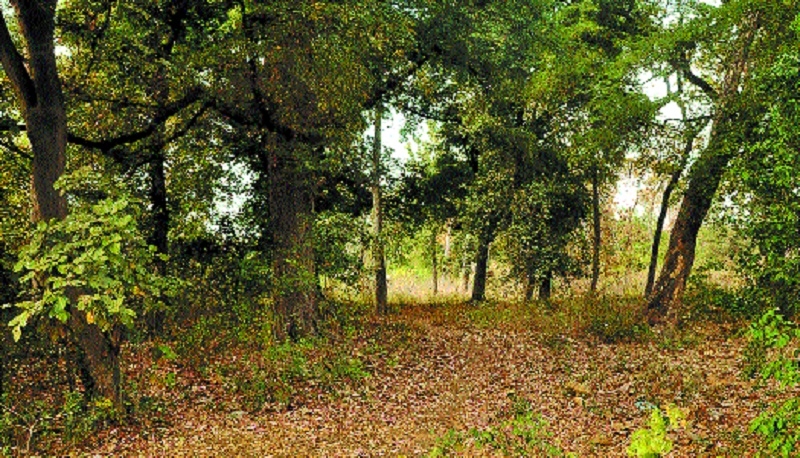Maha Metro to go ahead with road through Bharat Van, says shall transplant 558 trees
| Date :03-Jun-2019 |

The lush green Bharatvan near Bharat Nagar
Staff Reporter:
Various organisations oppose the idea, say will file objections
Irrespective of the strong sentiments of the people against the proposed road through Bharat Van, Maharashtra Metro Rail Corporation Limited (Maha Metro), Nagpur, has decided to go ahead with the project. Now, based on its proposal, Garden Department of Nagpur Municipal Corporation (NMC) has invited suggestions/objections regarding uprooting and transplantation of 558 trees that will be affected by the project. Surprisingly, NMC’s Garden Department has published a small ‘public notice’ in a Marathi daily in this regard.
As per the notice, Additional General Manager (Planning-II) of Maha Metro has proposed to construct 18 metre wide and 500 metres long Development Plan (DP) road from Mother’s Dairy in Bharat Nagar to Maharashtra Jeevan Pradhikaran office in Telangkhedi. This is the same DP road that is threatening the existence of Bharat Van, which has several full-grown trees. This is the same road that the people have been opposing for months now. This is the same road project to which exists an alternative route that will not affect Bharat Van. As per the public notice, NMC, Agriculture College, and Maha Metro jointly conducted a survey of trees that will be affected by the proposed DP road.
They found that total 558 trees including 101 big and medium trees of different species, and 457 small trees would be affected by the road construction. Maha Metro has proposed to transplant these trees on the nearby land of Dr Panjabrao Deshmukh Krishi Vidyapeeth. On this proposal, NMC has invited suggestions/ objections from the people within seven days from publication of notice -- that is, till June 7. The public notice published by Garden Department of NMC has angered the people who have been associated with ‘Save Bharat Van’ campaign.
On Sunday, an ‘open mic’ activity was held in Bharat Van as part of the ongoing campaign. During the event, the people present there discussed this public notice and all of them agreed to not only file objections with NMC but also to make more and more people aware of what was happening. Adv Ambarish Joshi of Footloose Trekkers told ‘The Hitavada’ that the road plan itself was wrong. For, an alternative route was available and there was no need to construct 500-metre long road. The road from Hanuman Mandir-Futala Road-Amravati Road-Bharat Nagar Chowk takes only 4-5 minutes, he said. “There is no point in destroying rich biodiversity of Bharat Van for construction of a small patch of road,” he stressed. Referring to the notice published by NMC’s Garden Department, Adv Joshi said that the ratio of survival of transplantated trees was very low and there was no guarantee that all the transplanted trees would survive.
A public interest litigation is pending before the High Court and people have hopes from the judiciary, he added. Sharad Paliwal, President of Paryavaran Prerana who has intervened in the court, also said that uprooting the trees from original location and transplanting them elsewhere was no solution. Nowhere in the world, 80-90 years old trees could be transplanted. “They do not have technology. Transplanting one or two tree is different, but transplantation of hundreds of trees... Survival of transplanted trees is very poor even in humid climate of Mumbai. In the extremely hot weather of Nagpur, survival will be more problematic. Besides, not all the species could be transplanted,” he said.
Paliwal said that people were not opposed to development, but they were against destruction of environment in the name of development. In case of the proposed Bharat Nagar road, already an alternative route was available and it was used by many people. “Why are the authorities hell-bent on destroying the rich forest like Bharat Van?,” he wondered. Many individuals and organisations will file objections as it is not only a question of hundreds of trees but also of groundwater table dependent on trees, he said.